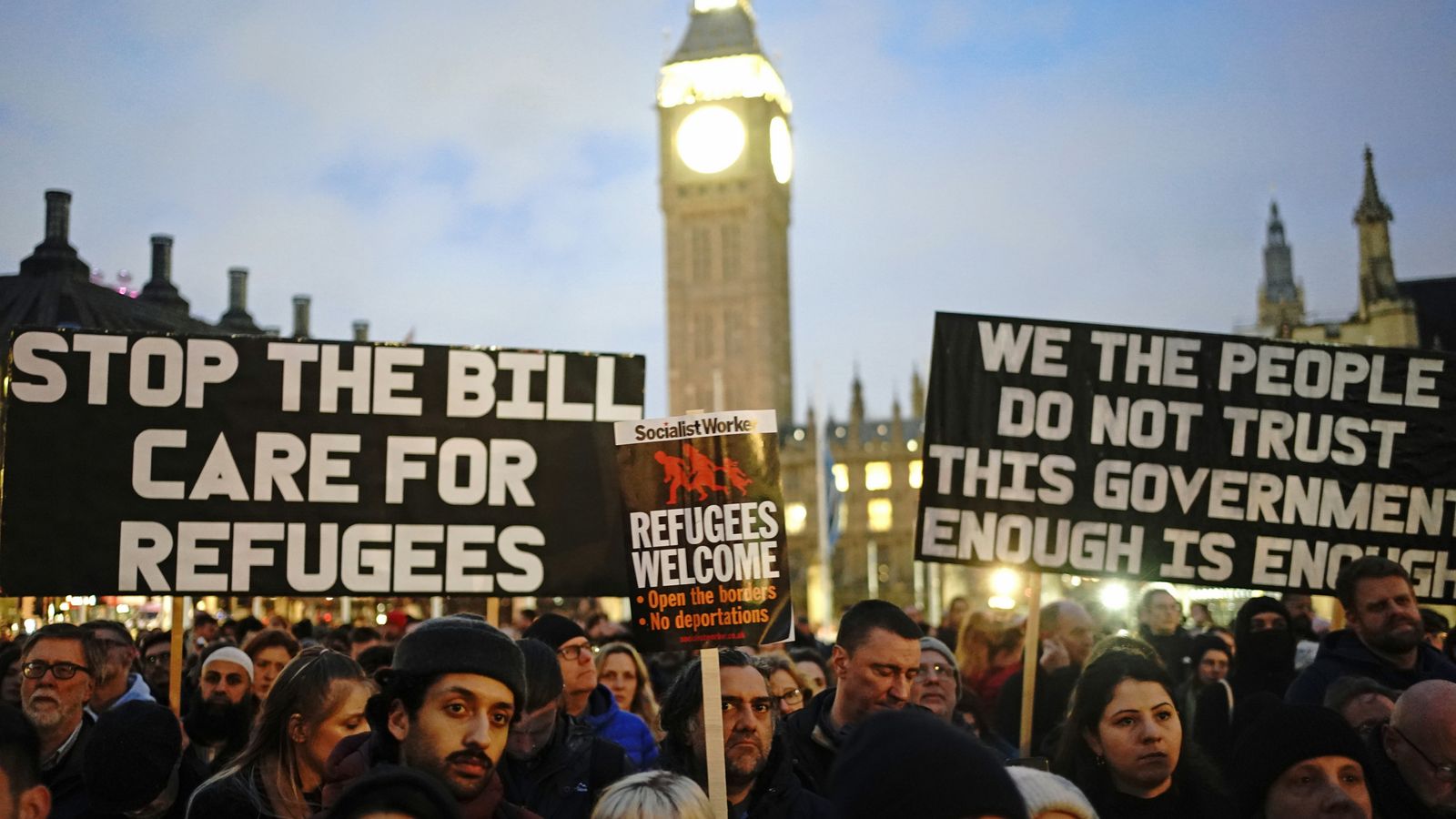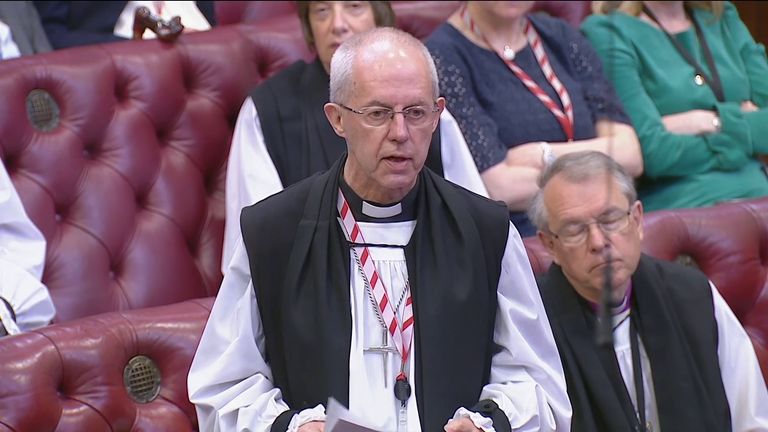Defeats in the House of Lords mean the government will need to make the case about why it should not be legally bound by international refugee conventions.
The government suffered a series of setbacks on its Illegal Migration Bill in the House of Lords on Wednesday, amid fierce opposition from peers.
One of the amendments passed by the ermined legislators included a requirement for the government to abide by a series of international agreements such as the 1950 European Convention on Human Rights, the 1951 UN Refugee Convention and the 1989 UN Convention on the Rights of the Child.
The bill seeks to prevent people who cross the Channel from claiming asylum, instead looking to deport them to where they originated or to a third country like Rwanda, and will also introduce caps on the number of people entering the UK.
But the Lords called for changes to the government’s proposed law.
Peers voted to say the bill should only apply from when it is brought into law – rather than it being backdated to 7 March.
The upper house went on to vote to change the law to allow unaccompanied children to claim asylum, and to ensure alleged victims of people trafficking are not detained or deported before they can apply to a referral system for protection and support.
After these four votes, the balloting system in the House of Lords failed, meaning the session will resume on Monday.
Peers will be deciding whether they want to attempt to force Home Secretary Suella Braverman to consider asylum claims from people who have not been removed from the UK within six months, as well as limiting the destinations where LGBTQ people can be deported.
Once the amendments have been voted on, the bill will return to the House of Commons, where government MPs could vote to strip out the changes made by the other House.
Read more:
Cost of sending each migrant to countries such as Rwanda is £169,000
Children detained under Illegal Migration Bill at risk of PTSD and suicide
Government plans to house migrants in marquees across country
However, the government will still have to explain why it does not think a legal requirement to abide by international refugee charters is necessary after the votes in the Lords.
“Stopping the boats” is one of Rishi Sunak’s five priorities as prime minister.
Home Office minister Lord Murray of Blidworth accused peers of trying to derail the bill, branding the change a “wrecking amendment” that would make it unworkable.
Explained:
Is the government’s new Illegal Migration Bill legal?
But Conservative Baroness Helic said: “The government say they believe it is compliant. A great number of others, including some of the bodies tasked with implementing these conventions, say that it is not.
“What is clear is that disobeying or disapplying international agreements which bear the name of the United Kingdom is not acceptable.
“If the government is unhappy with international obligations, then they are free to seek to renegotiate them, but simply ignoring our international legal commitments in pursuit of domestic expediency puts us in very bad company.”
When it comes to children, the government’s plans would only allow people to stay in the UK until they turn 18, and they would not be able to stay in the country.
The amendment to allow youngsters to make claims to stay was championed by Labour peer Lord Dubs, who fled the Nazis as a child on the Kindertransport scheme.

